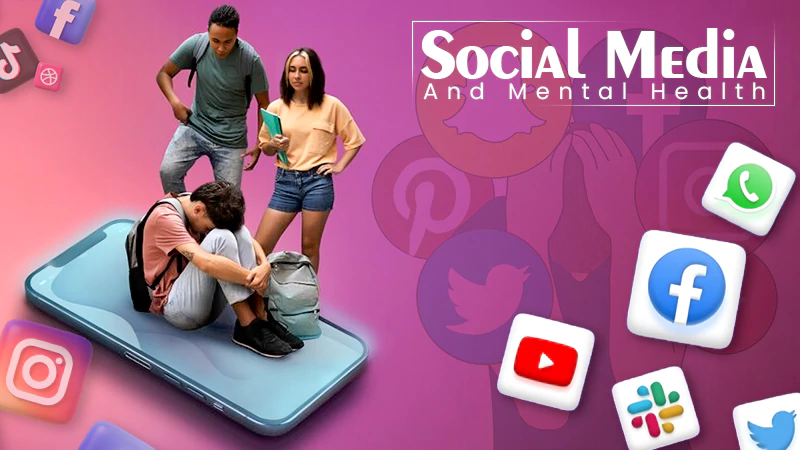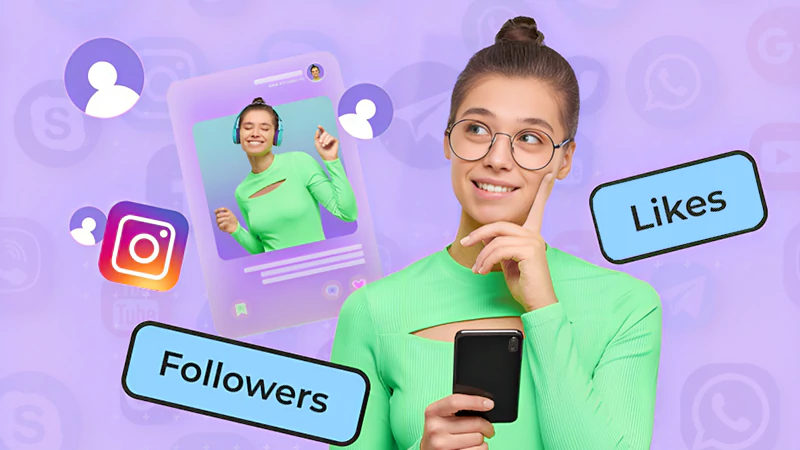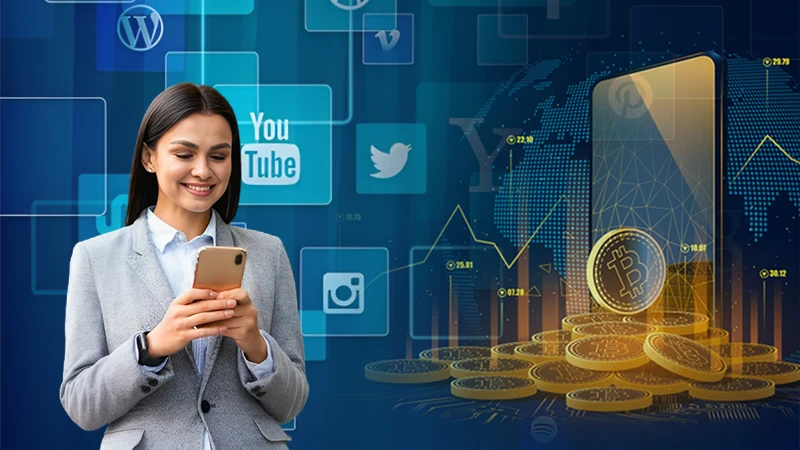Waking up with a hacked social media account can be a nightmare. There’s no denying that social media has become a ready target for cybercrime.
For students and businesses relying on social media, it’s extremely important to keep your accounts safe.
The increased reliance comes with its own set of risks, hence, taking the simplest of precautions reduces the likelihood of intruders attempting to break in.
The loss of carefully managed accounts not only crashes one’s image or presence but can negatively impact businesses and organizations.
It’s hard to ditch hackers on social media because they are masterminds. Every time they come up with more sophisticated ways to steal passwords, credit card data, photos, and any other information to blackmail you.
If you need academic assistance concerning the same, you can explore 99papers review.
Is hacking unavoidable, or are there ways to prevent it?
This article is written to cover the best cybersecurity practices to protect your social media accounts from unwanted intruders, and we aim to educate you about signs that your social accounts have been compromised.
Signs Your Social Media Account Has Been Hacked
No matter how carefully you follow the guidelines, people still fall for scams and get their accounts hacked. So, determining them earlier won’t let you face severe consequences.
Before looking at preventive measures, check if any of your accounts are already at risk. It is imperative to know when to take the necessary measures.
So, keep your eyes on these signs to block hackers from intervening:
- You receive an email saying that you changed your login when you never did.
- You see an account that uses your name and/or photos.
- Your password has been changed.
- Random posts from your profile that you didn’t do.
- You get a flood of advertisements that feel like spam.
- You have trouble logging in to your accounts.
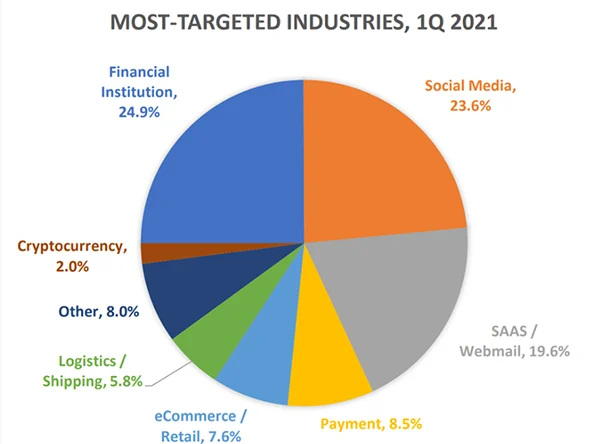
Statistics:
More than 23% of phishing attaks take place on social media according to statistics by APWG.
- You are suddenly following people you don’t know.
- Your contacts report unusual messages.
- Logins from remote locations.
- Suspicious activity like running promotions you haven’t conducted or trying to sell something on your business page or group.
- Receiving emails notifying them of unauthorized access.
- Signed up for subscriptions and unusual purchases.
- Suspicious activity in your ad manager.
- Small banking transactions.
- Suspended account
Don’t despair! Panicking is not a solution. Besides fear, there are some easy ways to protect your privacy and prevent hacks.
But, is my perfect paper legit or has my social account been hacked? Many of us would ask ourselves?
You can easily check for this by simply following the above-listed steps.
“Do not anticipate trouble or worry about what may never happen. Keep in the sunlight” says Benjamin Franklin.
Secure Your Social Media Accounts From Hackers
Always Use Strong Passwords
Generally, people think hacking will never happen to them, but passwords are the gateway to easily hijack accounts and breach data.
Do You Know?:
25% of Facebook accounts were hijacked in 2023. Whereas, the hacking percentage of Instagram accounts reached 85%.
Remembering strong passwords can be a pain in the rear. Whereas, setting a guessable password exposes your account to hackers and Increases its vulnerability.
Clifford Stoll once said, “Treat your password like your toothbrush. Don’t let anybody else use it, and get a new one every six months”.
Some classic examples of weak passwords consist of names, date of birth, and easy combinations like ‘1234567’, ‘111’, or repeated keystroke patterns.
Instead, use a password that’s difficult to crack. For instance, Secure100Password3!, and Insta2373W35rAccount@456.
Allow Two-Factor Authentication Across Your Accounts
The most reliable method to safeguard accounts today is allowing two-factor authentication. Social media platforms ask users to enable it.
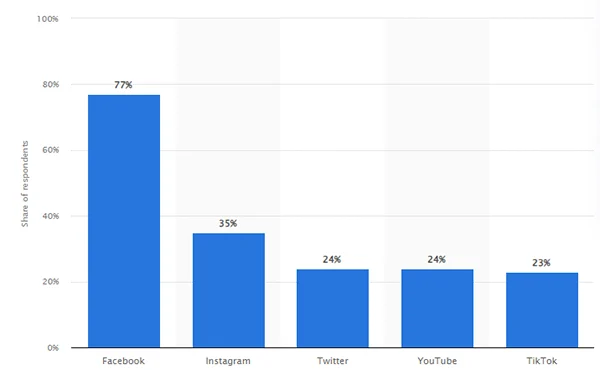
Statistics:
According to the survey conducted online in 2021, 37% of social media users have had their online profiles hacked.
However, 77% of these hacking incidents occurred on Facebook.
Sadly, a few ignore it, but thankfully, most platforms repeatedly suggest this feature to users who fail to enable it.
This method confirms the user’s identity with any two of three factors i.e. knowledge, possession, and inherence.
So rather than depending on the password itself, a combination of two different components defends your digital presence. Typically, the account password and a confirmation code which is sent via text message or email.
Install Antivirus Software
This is completely optional but installing antivirus software is definitely worth giving it a shot.
You should know that it might cost you some money, but robust antivirus software stops malware the moment your system detects it.
In addition, it can flag and defend your system against malicious sites, links, and phishing scams. Want to know how? By automatically detecting and deleting the destructive code.
Installing antivirus software doesn’t mean you are liberal enough to follow risky links, be cautious when clicking on suspicious links.
Regularly Update Your Security Settings
To combat hacking techniques, mobile devices nowadays are coming with different security features.
Get active and check if there is any change or update available. In case of an available update, hit on and install it as soon as possible.
Be Selective With Third-Party Applications
Third-party applications must provide hackers with a gateway to break into your system.
They may ask to access your system or will only need minimum permissions like the ability to read and post content, in that case, only authorize legitimate applications.
Do not forget to read out details of what exactly you are authorizing.
Use a Password Manager
One password for all social media handles is maybe a secure way, but it will not change the possibility of forgetting essential passcodes and usernames.
A password manager is needed to avoid this problem without compromising your security.
Password managers are software applications. They are built to manage passwords or retain your login details in an encrypted database.
Avoid Logging Into Your Accounts on Unprotected or Public Devices
It may seem convenient at the time to quickly log into your social media accounts like Instagram on diverse devices, but you never know who can breach your data.
Interesting Fact:
A web scraper on a popular dark web hacking forum tried to sell the personal data stolen from 1.5 billion Facebook accounts in September 2021.
Even if you are logging in on the device of your trusted ones, make sure the device and individual are trustworthy prior to accessing your account from their device.
Enable Login Notifications
Are you dealing with a hacked Facebook account? Wouldn’t it be beneficial to get notified whenever you or someone else access your account?
Enabling login notifications is one of the easiest ways to check suspicious activity across your social media pages.
Doing this will provide an instant alert whenever there’s a suspicious login attempt on your account.
Final Words
With numerous social media accounts to oversee, it’s oftentimes laziness that compels us to use weak passwords.
Negligence can be the reason for hazardous consequences and will drastically impact your whole life.
Such crimes can be taken down by employing proper practices.
While getting hacked may sound terrifying, following these preventive measures protects you for the long haul.


